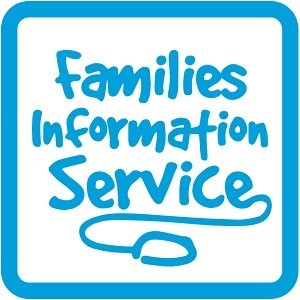Local Offer - Challenging Behaviour
Challenging behaviour can include a range of behaviours such as hurting others or themselves, destructive behaviours and more.
All children have the ability to demonstrate challenging behaviour. The behaviour may often be connected to how a child is feeling, and whilst some people may think your child is 'being naughty', they may be displaying these behaviours as a way to express their emotions or to cope with how they are feeling. Some children and young people may present disruptive behaviour when there is an underlying problem or if their needs are not being met. It's important to explore why a child is demonstrating this behaviour, to allow any underlying issues to be explored and any unmet needs to be fulfilled.
How can I support my child?
The way you respond to challenging behaviour can have a huge impact on your child’s future behaviour.
In order to best support your child, you need to try and find the root cause of their behavioural problems. These could stem from mental health and wellbeing problems such as anxiety or depression, struggling with the changes happening in their lives or for various other reasons.
Your child's behavioural problems could also stem from them struggling academically because of an unmet special educational need (SEN). If your child is struggling in school, speak to their class teacher to discuss this. If your child has been identified as having SEN then their setting should put provision in place to support their special educational needs.
Once you have identified the cause of the challenging behaviour, you can put effective strategies into place to help combat them. To do this successfully, it can help if you understand how children's and young people's minds work. In Doncaster, you can access a series of free online courses which can help you better understand your child. The courses can be completed at your own speed, at a time that works for you. Simply sign up online and use access code STGEORGE to gain free support and advice. You can find out more about the courses available on our Parenting Programmes webpage.
What other support is available?
Family Hubs
Parenting and Family Support Service (PAFSS)
The Parenting and Family Support Service (PAFSS) are there for families who need a named worker alongside them to help them work out a plan for keeping children and young people safe and healthy enough to thrive and achieve their potential in education, training and employment. They work with children and young people from birth to 19 and their families.
They offer a responsive service including one-to-one support to families, evidenced-based programmes that support parents and coordinated multi-agency interventions.
Doncaster Autism Service (DAS)
Some autistic children and young people may present with behaviours that are difficult for adults to manage. You may hear people refer to this as meltdowns or shutdowns. As a parent or adult supporting the young person, it is important to recognise that this isn't chosen behaviour.
There are many reasons that a child or young person may present behaviours that you find difficult to manage. These could include a reaction to an intense and overwhelming situation the child or young person has experienced, a response to demands that have been put on them throughout the day, sensory sensitivities or as a result of masking, to name just a few. It helps if you try to unpick the behaviours and identify any triggers.
If your child has a diagnosis of ASD (Autism Spectrum Disorder), if you waiting for an assessment or would just like further information about ASD, then you can seek support from Doncaster Autism Service (DAS).
DAS offers a series of amazing workshops for families, including a workshop on “Managing behaviours that challenge “ which is delivered by an autistic adult, Reece Coker. His lived experience and resilience is thought provoking and parents have commented on how much they learned from him, how much hope it gave them for the future and how they were inspired by his workshop.
The service also hold regular coffee breaks for parents and carers which give you a chance to meet other families in similar situations, share your experiences and learn from the experiences of others.
More Information
You may also find the following pages helpful:
- Behaviour Outreach Support Service (BOSS)
- Dealing with Child Behaviour Problems | NHS
- Challenging Behaviour Foundation
Back to Health and Social Care
Downloads & Resources
Display your introduction over featured image?: No

 City of Doncaster Council’s
City of Doncaster Council’s